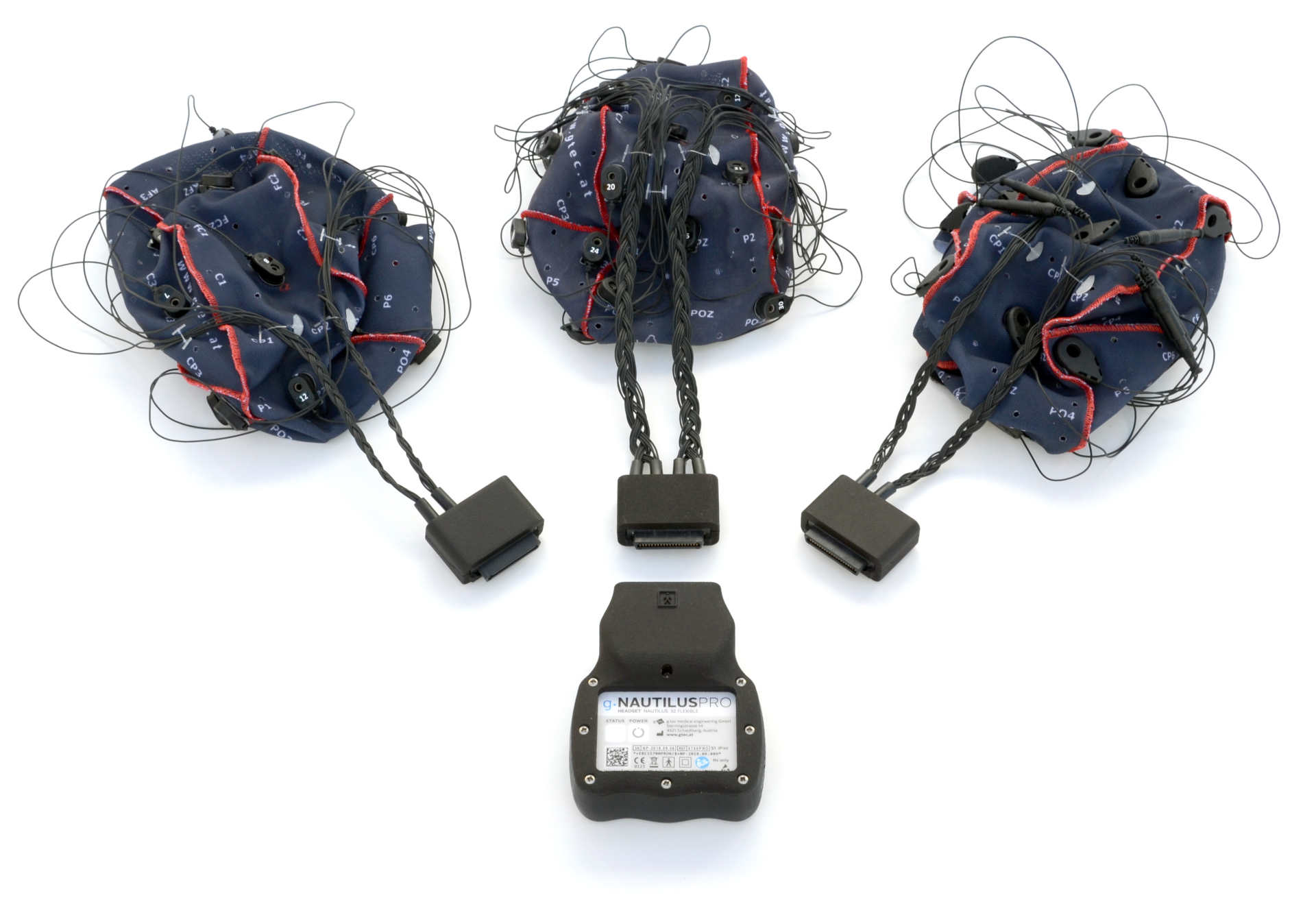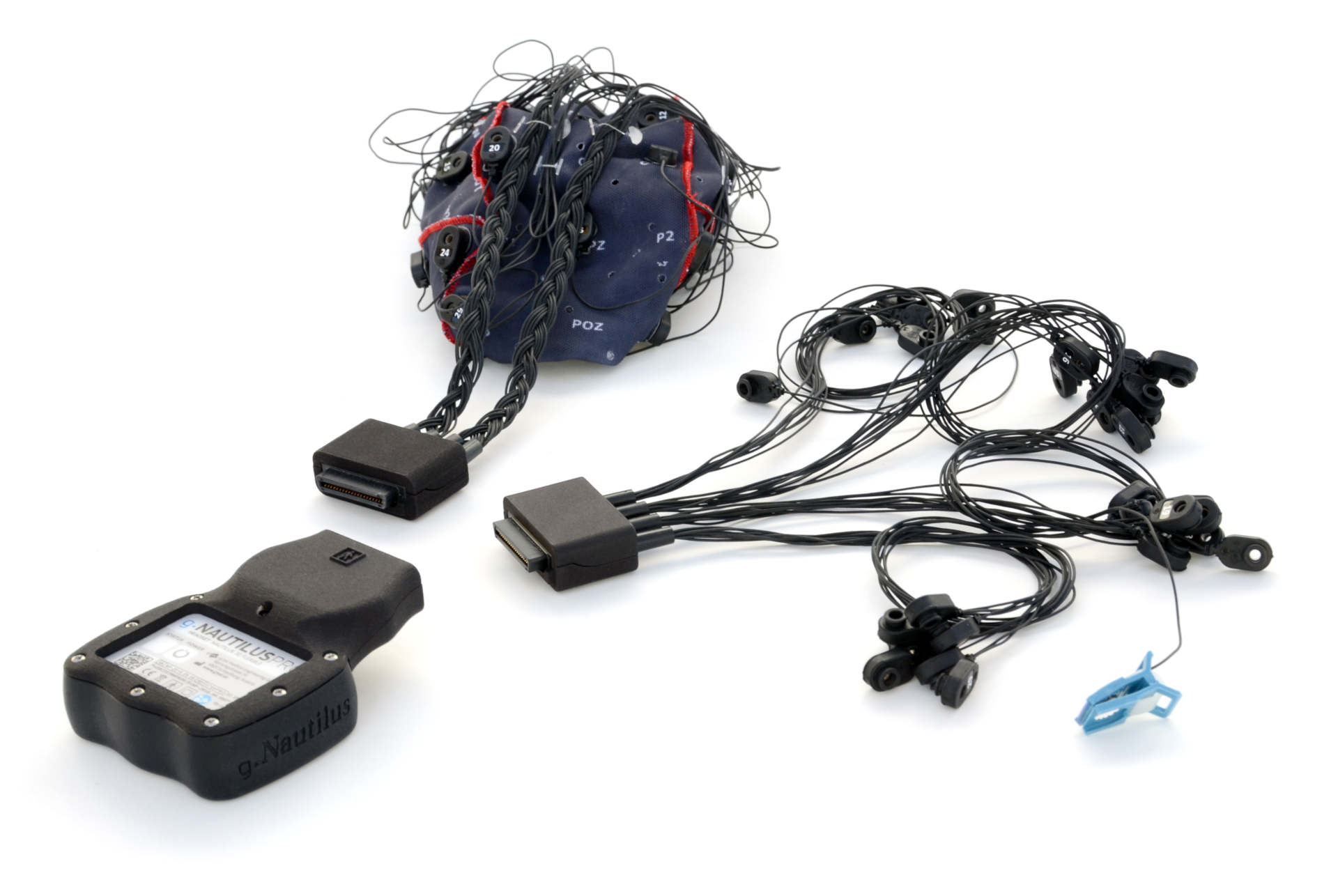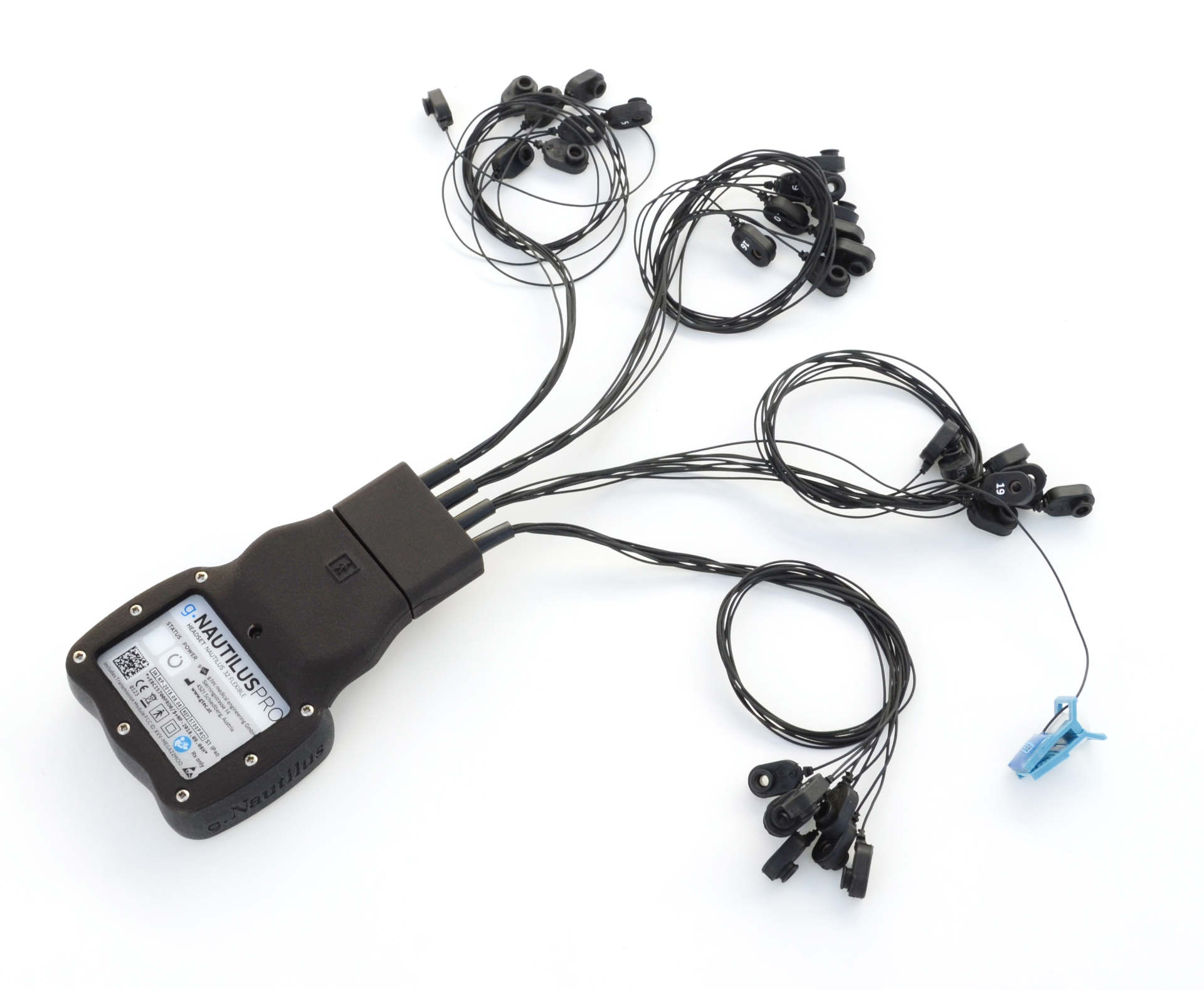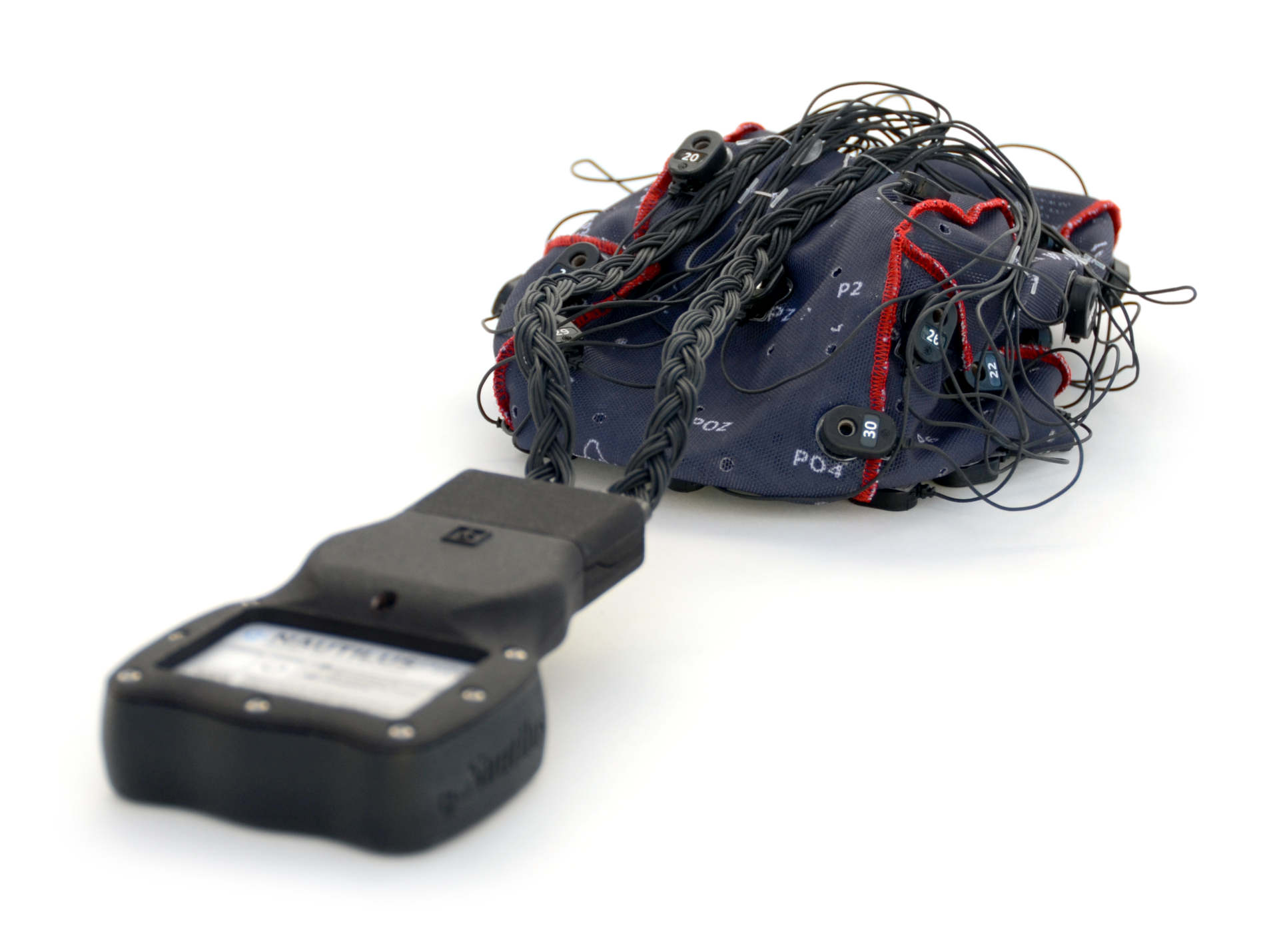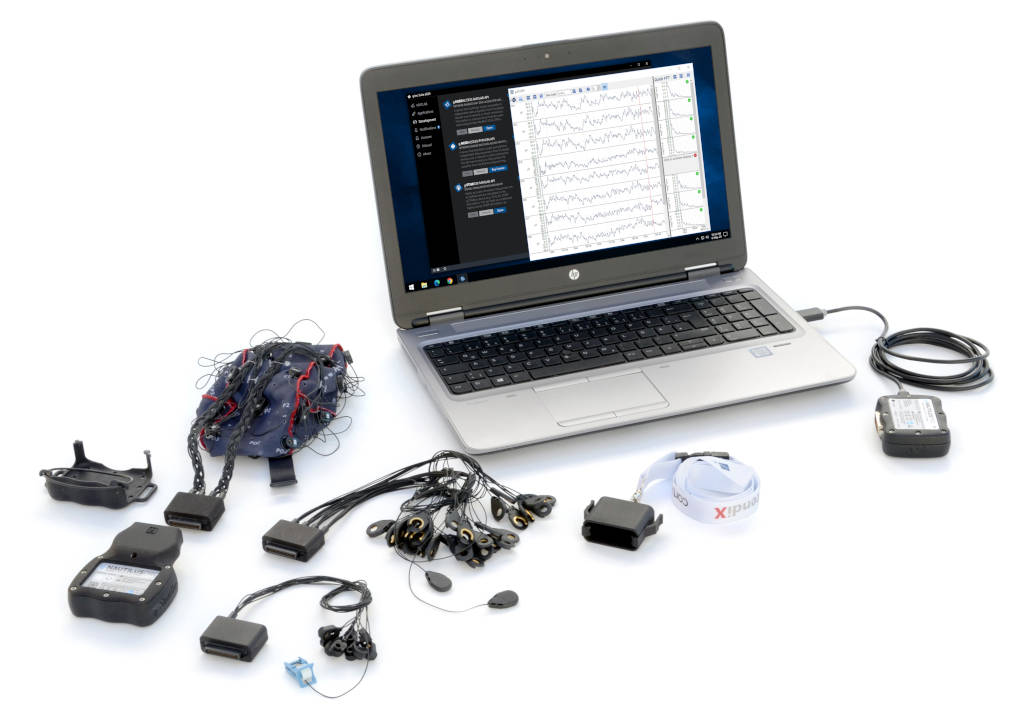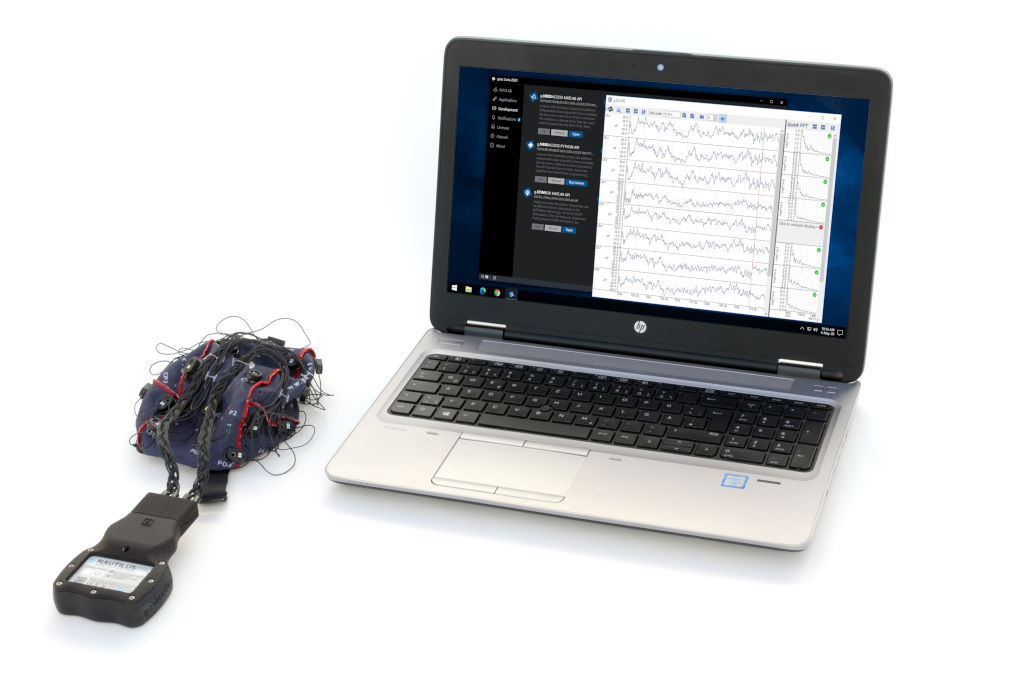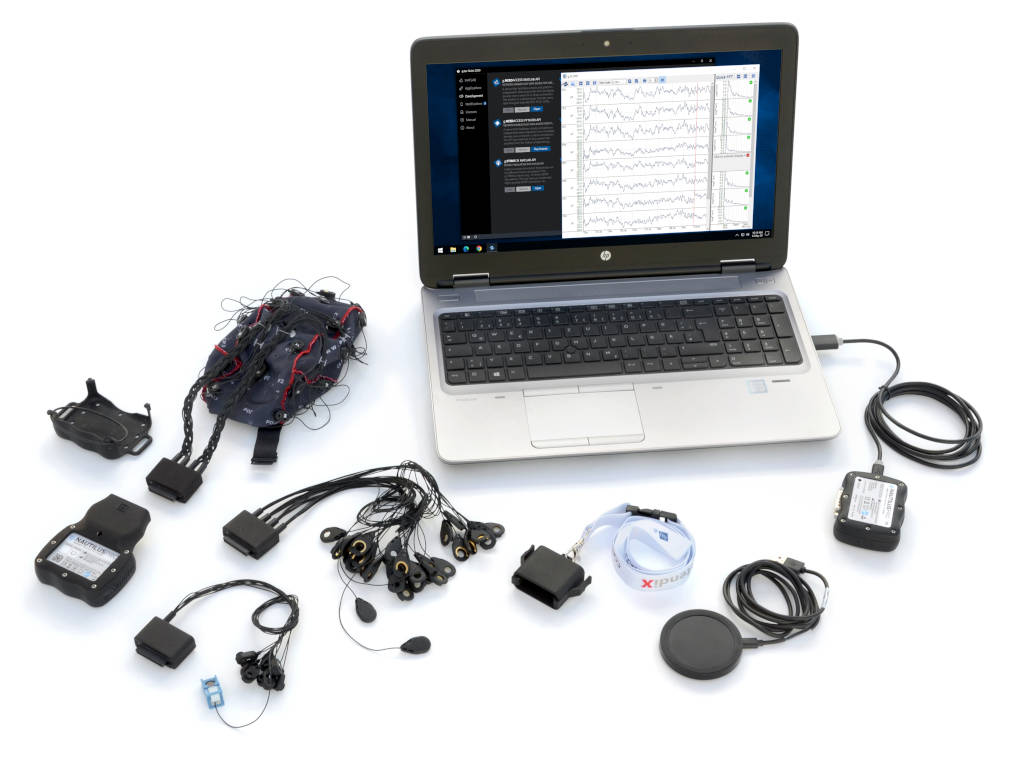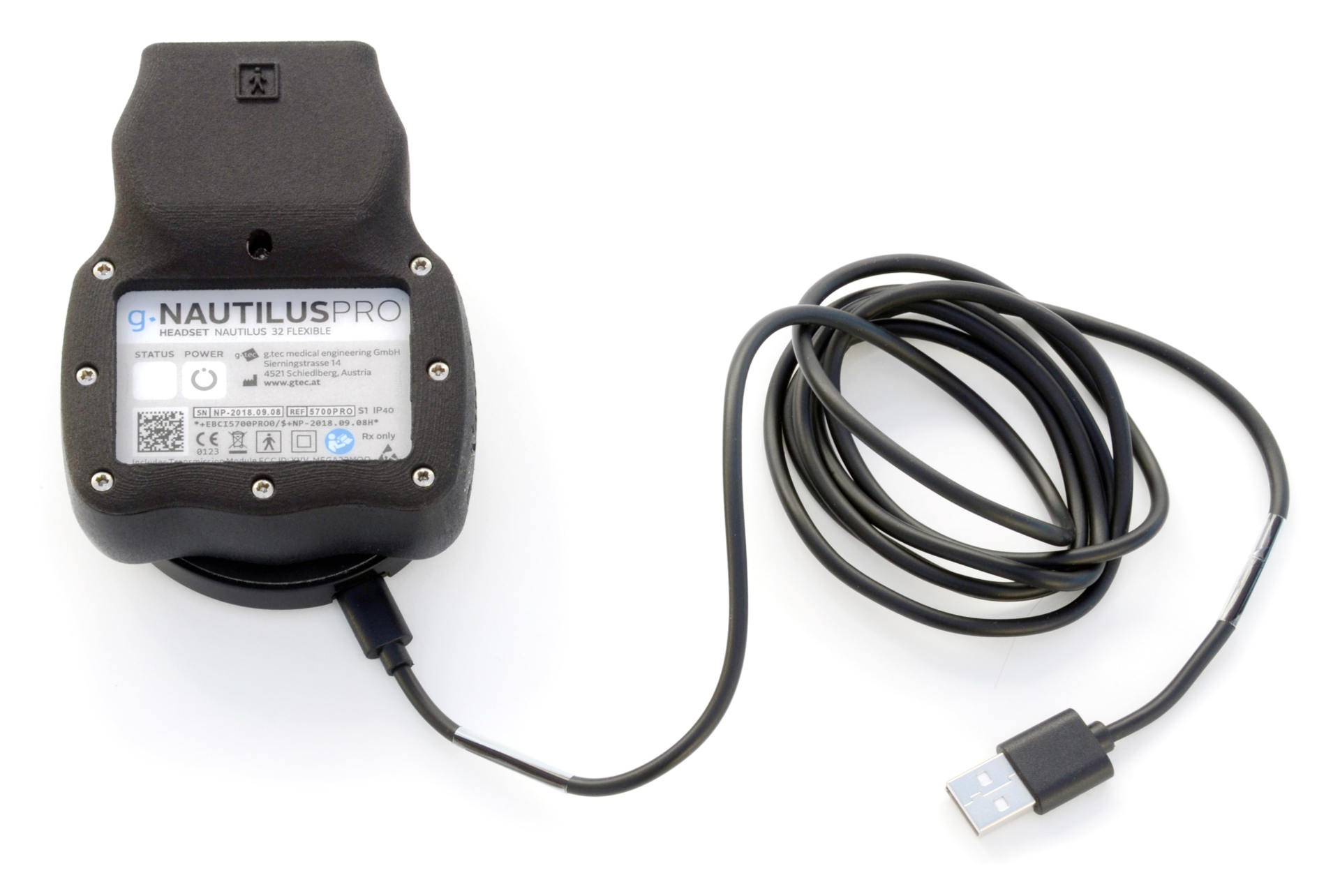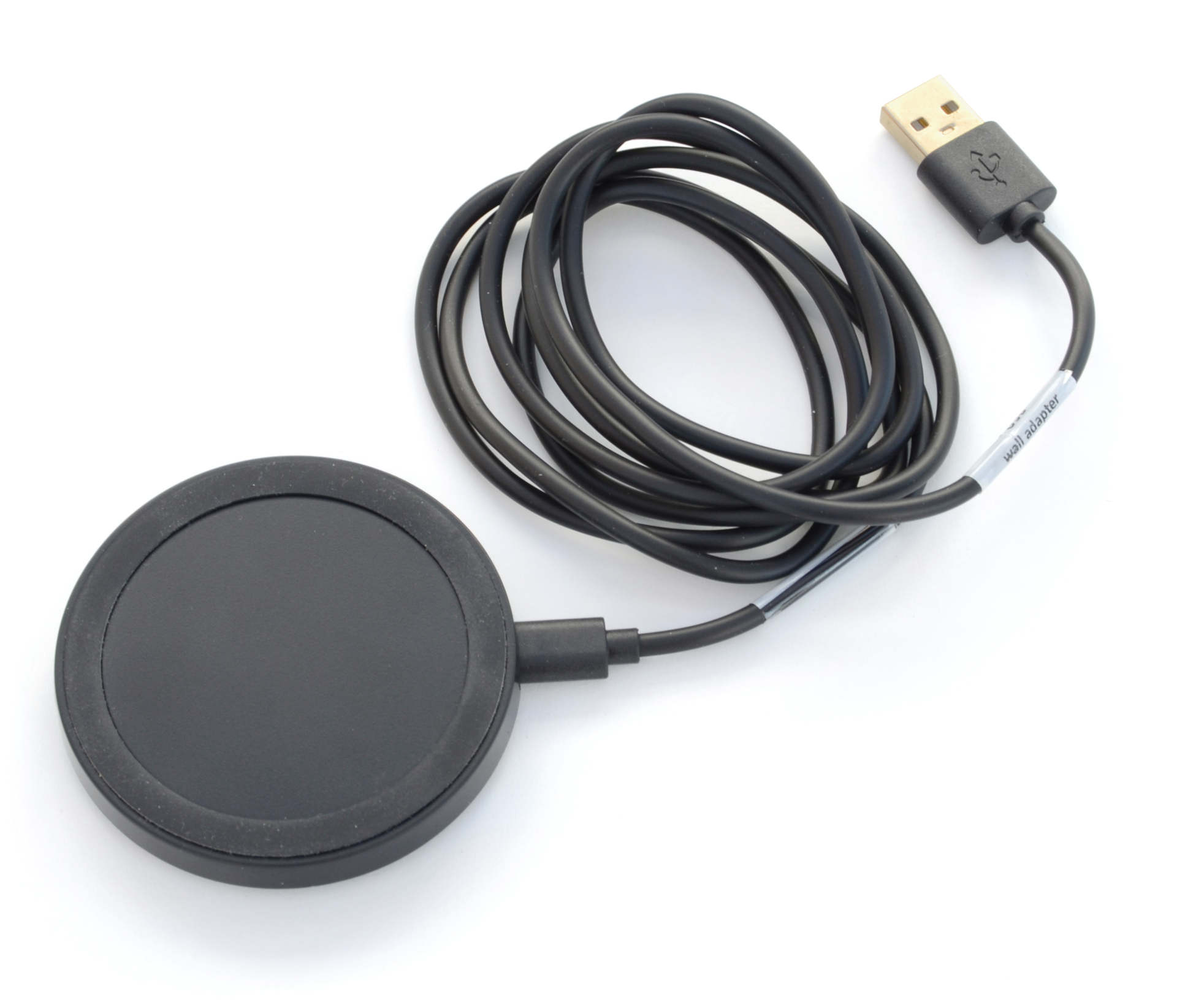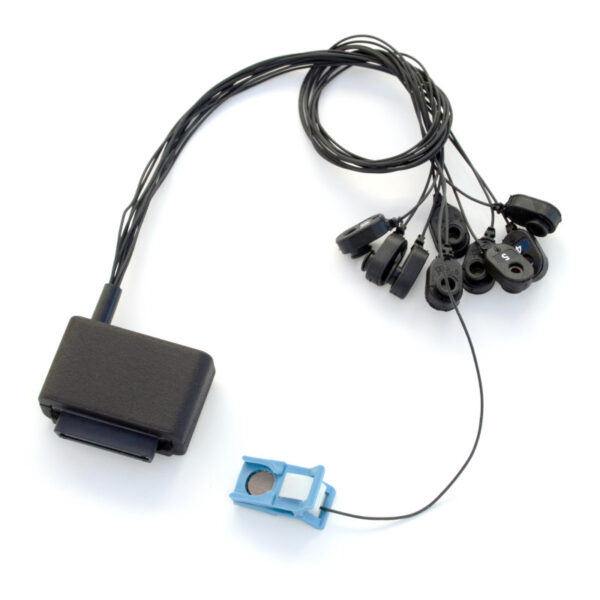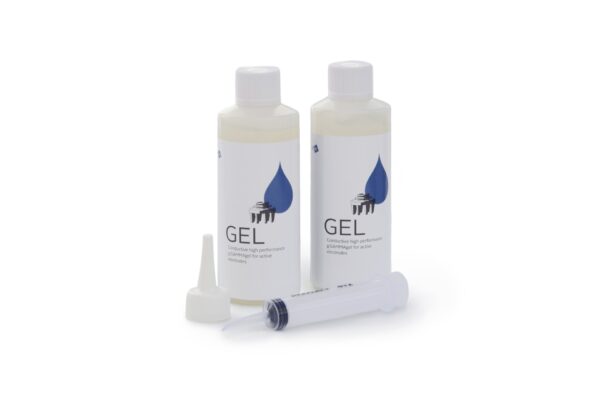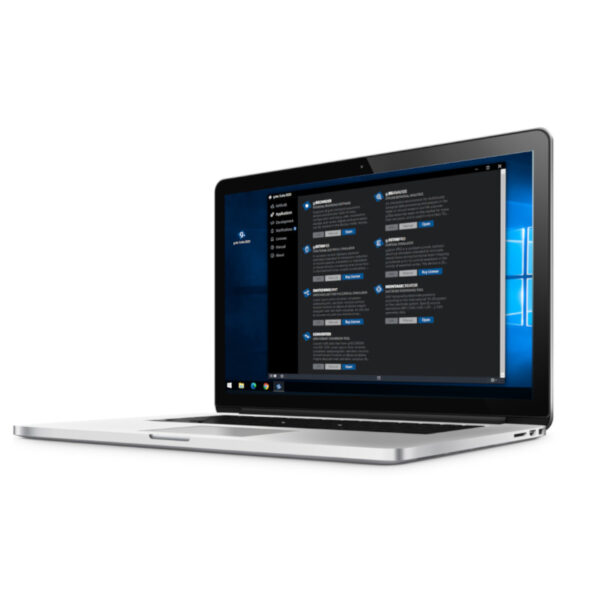
ONE AMPLIFIER. MULTIPLE CONNECTORS
g.Nautilus PRO FLEXIBLE is a CE-certified and FDA cleared wearable EEG headset to record brain activity in medical and clinical environments. It’s available with 8/16/19/32 dry or wet EEG electrodes that can be plugged into the headset.
This makes the device especially suited for medical applications because multiple caps can be used with one headset and the cleaning is easier.
g.Nautilus PRO FLEXIBLE allows to plug-in electrode strands with g.SAHARA hybrid EEG electrodes or g.SCARABEO wet EEG electrodes. Simply pick an electrode strand best suited for your appliation. The different electrode strands hold 8/16/19/32 EEG electrodes. Additional Safety Connectors allow you to plug in different types of body sensors.
- Strand g.SCARABEO
- Strand g.SAHARA Hybrid
- Strand g.SCARABEO + 4 Safety Connectors
- Strand g.SAHARA Hybrid + 4 Safety Connectors
- Strand Safety Connectors Only
| Electrode strands can be plugged into the headset |
| Strand with g.SAHARA hybrid EEG electrodes for dry and gel recordings |
| Strand with g.SCARABEO EEG electrodes for wet recordings |
| Strand with safety sockets to connect g.SCARABEO, g.SAHARA hybrid or g.Sensors |
| Easy cleaning of the electrode strands; fits ideally for medical applications |
| 8/16/19/32 channels wearable EEG with 3-axis accelerometer |
| 24-bit accuracy at 500 Hz sampling rate |
| 2.4 GHz digital transmission, range: 10 meters indoor |
| 10 hours continuous recording and 2-3 hours charging |
| Internal impedance check with for g.SCARABEO electrodes |
| A new benchmark in usability |
| Full software environment |
| CE certified and FDA cleared medical EEG headset |
| Weight | < 110 g without electrode grid |
| Size | 78 (L) x 94 (W) x 26 (H) mm |
| Color | BLACK |
| Sensitivity | ±2.25 V, ±1.125 V, ±750 mV, ±562,5 mV, ±375 mV, ±187.5 mV (software selectable) |
| Interface | Wireless 2.4 GHz ISM band |
| Digital inputs | 8 digital trigger inputs at Base Station |
| Supply | Built-in lithium ion battery, runtime > 10 h with 32 channels, inductive charging according to the QI standard of the Wireless Power Consortium |
| Amplifier type | Real DC coupled |
| 32 × ADC | 24 Bit (1.024 MHz internal sampling per channel) |
| Noise level | < 0.6 µV RMS between 1 and 30 Hz (at highest input sensitivity) |
| Input channels | 32 mono-polar / 16 bi-polar channels with GND and REF (software selectable) |
| Input impedance | DC > 100 MOhm |
| Applied part | BF |
| Safety class | II |
| Certification and Standards | CE certified and FDA cleared medical device IEC60601-1 3rd, IEC60601-1-2, IEC62304, IEC60601-2-26, ISO 14971 10993-1, 62366, 2010-2012 IEEE Recommended Practice for Neurofeedback Systems |
ATTACHABLE BIOSIGNAL SENSORS
Add up different types of body sensors to measure simultaneously with your EEG recordings. The electrode strands with additional Safety Connectors are especially designed for high-performance measurements of multiple biosignals.

COMBINED EEG, TMS OR TDCS RECORDINGS
Brain activity can be recorded with g.Nautilus PRO while tDCS stimulation is applied. Also, TMS stimulations can be done during EEG recordings. A post-processing artifact removal algorithm integrated in g.BSanalyze software robustly eliminates the discharge artifact of TMS and tDCS within a few milliseconds.


“g.Nautilus wireless EEG amplifiers allow us to investigate freezing of gait in Parkinson’s disease, a dangerous symptom for the aging population as it can lead to falls. We can synchronize the EEG signals with VICON motion capture data seamlessly, without adding extra burden on our patients such as backpacks, or wired in hardware following them.”
Aysegul Gunduz, PhD - University of Florida, USA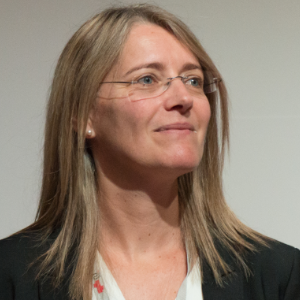
“We have used the g.USBamps for approximately four years now and the quality of the signals surpasses our greatest expectations. Last year we also invested in the g.Nautilus system and have been able to move from the more stringent laboratory conditions to the real world settings where BCIs find their applications. I would highly recommend both for anyone involved in BCI research.”
Natalie Mrachacz-Kersting, PhD - Aalborg University, Denmark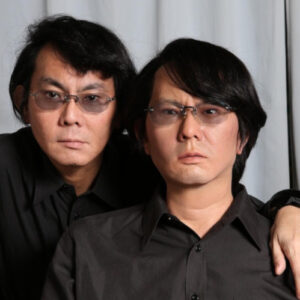
“We have several ongoing studies. One of these studies is to extend human arm control to new approaches that control more than two arms with the help of brain-computer interfaces.”
Hiroshi Ishiguro, PhD - Intelligent Robotics Laboratory, JapanMEASURING EMOTIONAL RESPONSE
Dolby Laboratories is widely known for producing great sound in cinemas. Within their research, Dolby Labs use g.Nautilus PRO wearable EEG device to study emotional responses of their audiences while they are watching videos. The scientists at Dolby Labs try to better understand what makes the audience engaged, what makes their skin blush, increase their heart-rate or give them goose bumps.
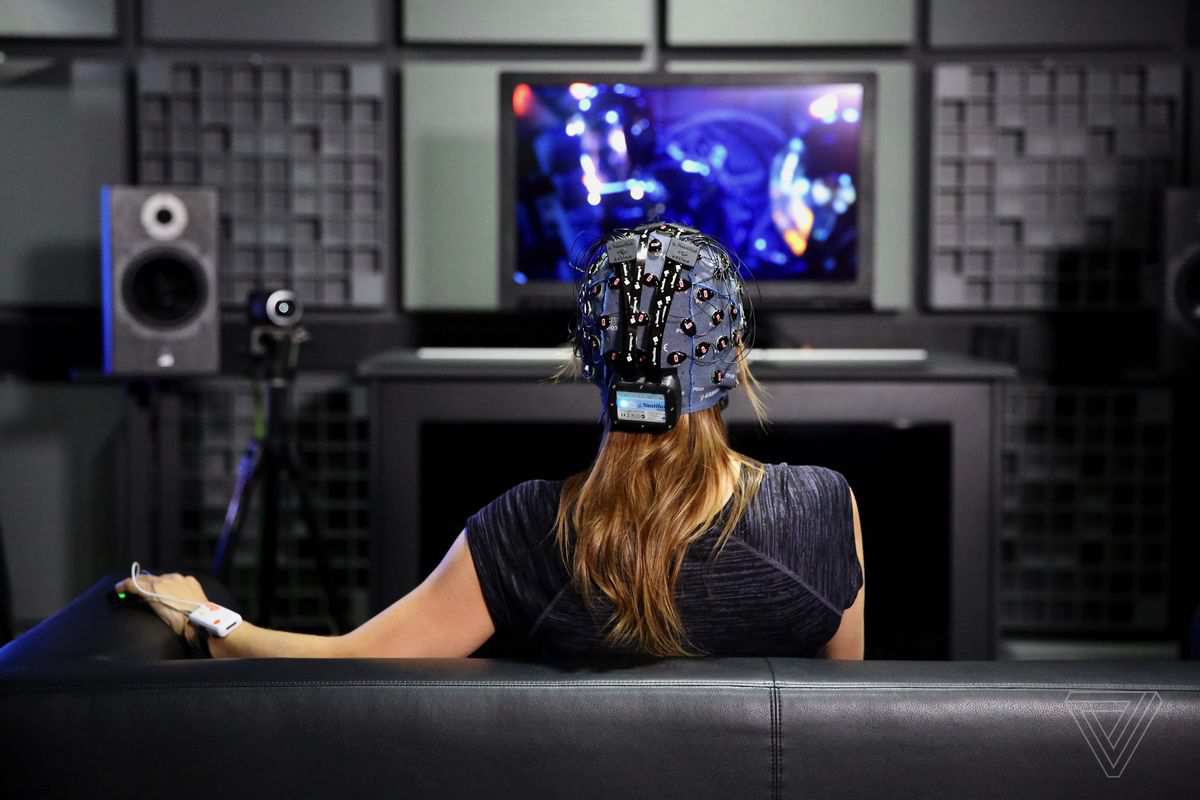
BRAIN ASSESSMENT FOR ALS, DOC & MORE
g.Nautilus PRO Flexible is a perfect match for brain assessments with DOC or ADHD patients who are unresponsive, do sudden movements or have limited brain recording time. g.tec’s studies have shown that wearable EEG headsets reduce data loss due to artifacts. This is important where clean brain signals are very difficult to acquire. g.Nautilus PRO FLEXIBLE can be mounted pretty fast because g.GAMMAcaps with pre-mounted electrodes can quickly be connected to the g.Nautilus Flexible amplifier. This helps users to prepare the optimal cap placement for different head-shapes and sizes whithout changing it after the recording.
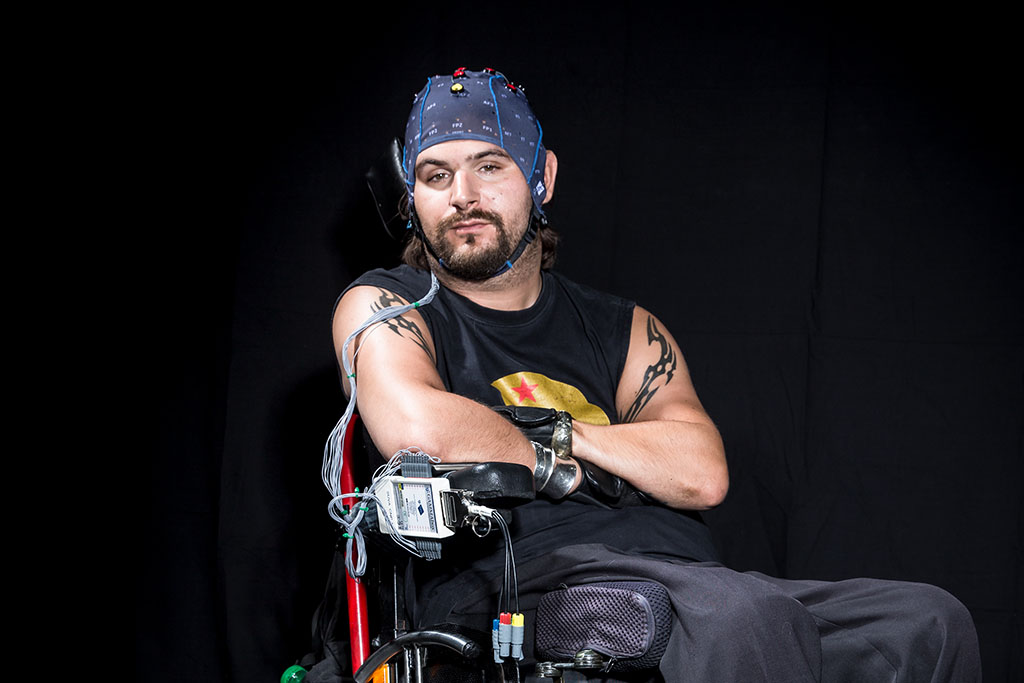
HIGH-PERFORMANCE EEG SYSTEM
Wearable EEG headsets are becoming increasingly important in medical and clinical environments because more and more studies are conducted in the field. For these reasons, g.tec developed different versions of g.Nautilus wearable EEG headsets. Their designs are tiny, lightweight, wireless and set a new standard of usability.
In combination with g.SAHARA hybrid or g.SCARABEO and g.LADYbird wet EEG electrode technology, researchers get top-quality recordings without the burden of data loss. Make the most of your precious recording time with g.Nautilus!

REHABILITATION OF THE BRAIN
g.Nautilus PRO FLEXIBLE can be used for stroke rehabilitation, where patients perform different movements (e.g. hand movement, leg movement, …). Therefore, it is very important to record artifact-free EEG signals from the headset. The cap size and montage of the EEG electrode strand in a g.GAMMAcap can be customized to a patients’ needs in order to quickly plug in the EEG cap and immediatly start recording. After the recording, the electrode strand can be disconnected from the amplifier for an easy cleaning and storage.
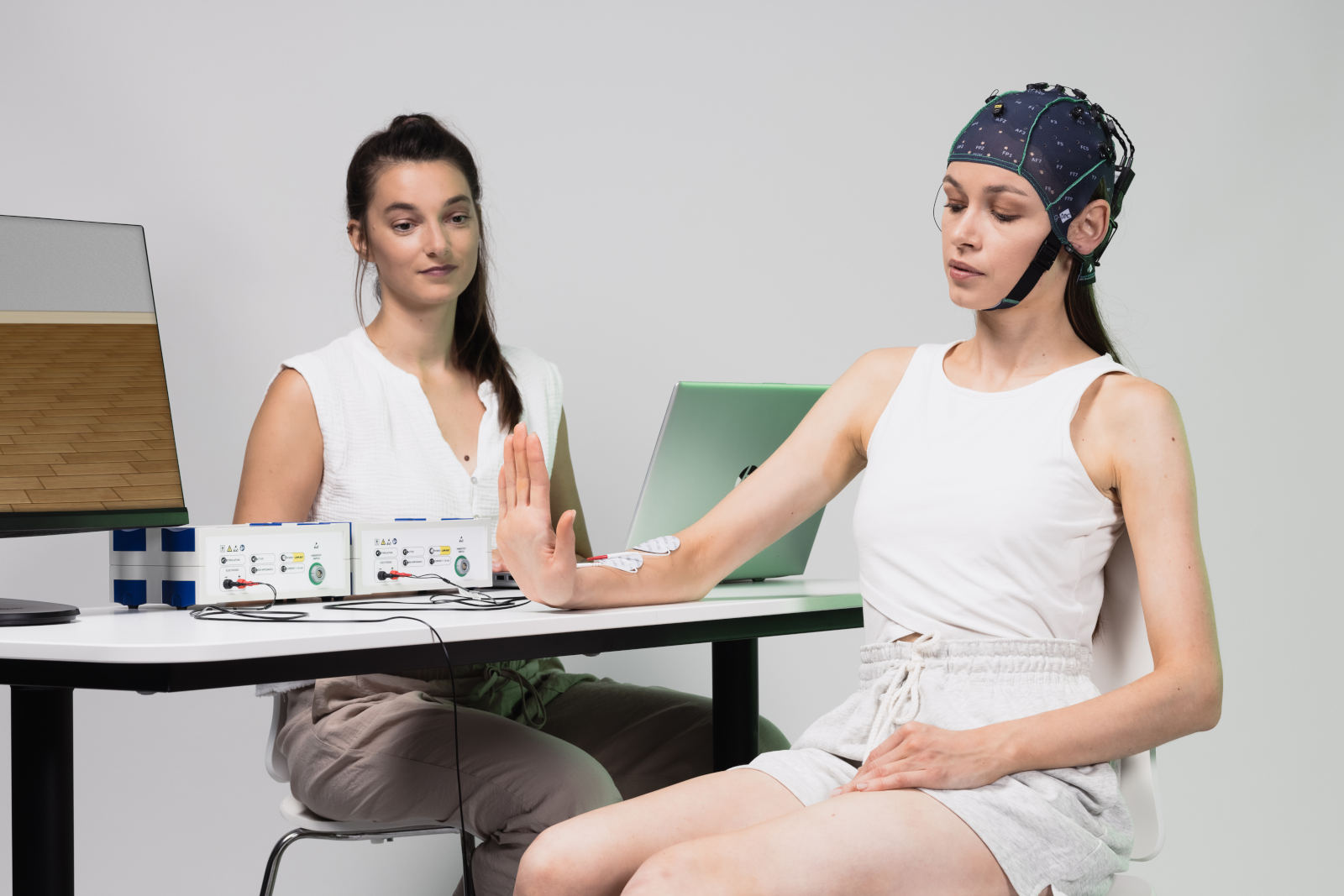
GET YOURS
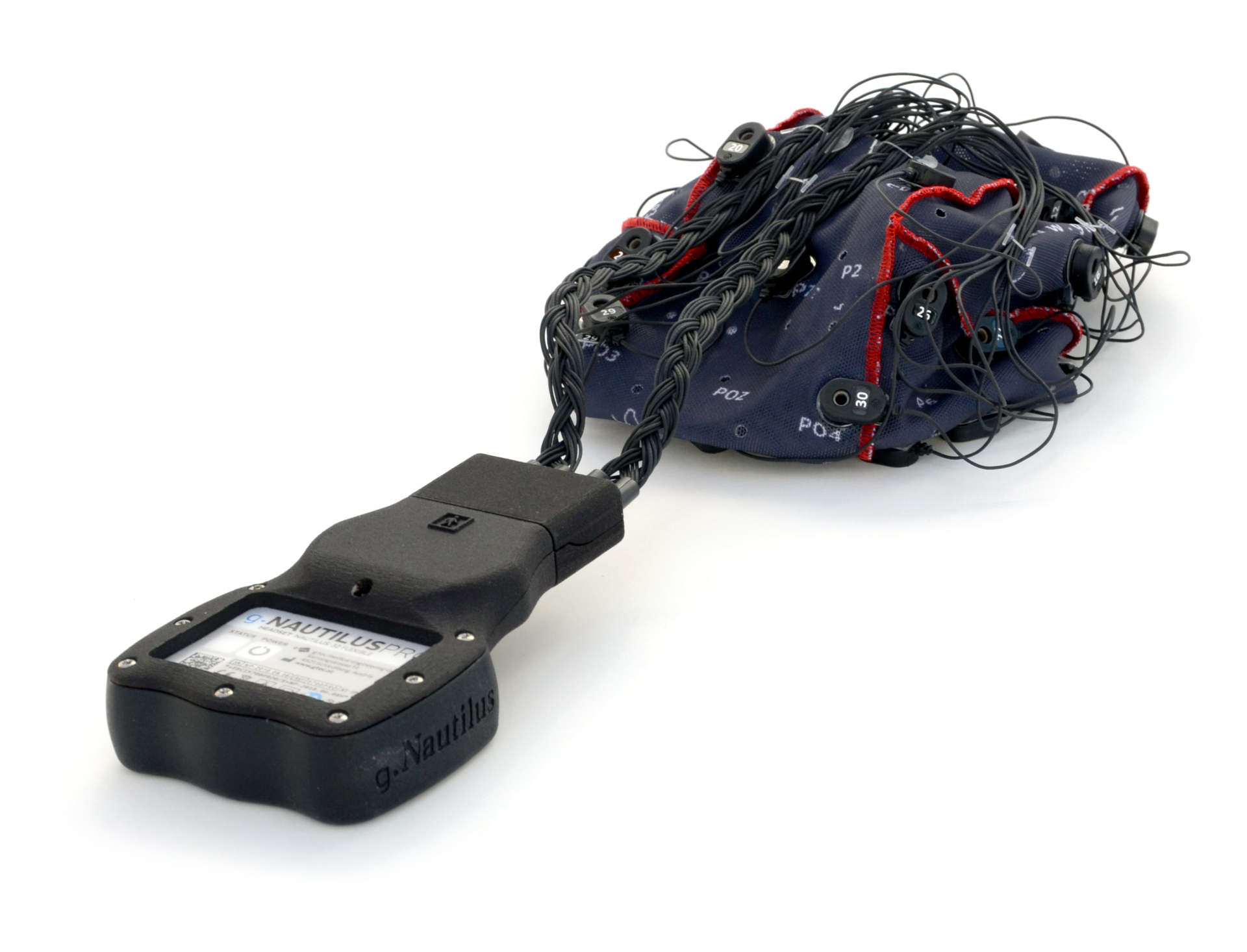
NEED MORE INFORMATION
ABOUT THIS PRODUCT?
Send us your email so we can contact you as soon as possible.
